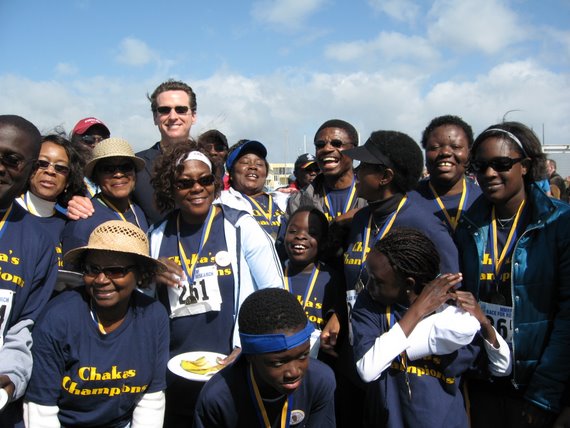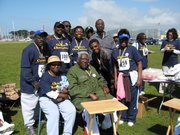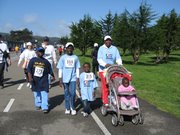| By Steve Vickers BBC News, Harare |
Zimbabwe's traditional weddings, usually joyous occasions with singing, dancing and plenty of food, are now increasingly being held in the absence of those whose presence might be considered vital - the bride and groom.
Nokuthula and Timothy are one such couple who have not joined their relatives in Harare to tuck into chicken and rice, beef and sadza (maize meal) as they live thousands of miles away in the UK.
Like millions of other Zimbabweans, they have left their homeland to seek better-paying jobs.
When they met abroad, they decided that they were made for each other, but wanted a traditional ceremony to be held back home where lobola or bride price is paid.
For many such couples, it does not make economic sense to fly back to Zimbabwe for a few days just for the wedding.
For the many Zimbabweans who have overstayed their visas, going back home is impossible, as they would not then be allowed to return to wherever they have found their jobs.
So Timothy and Nokuthula organised the event from London and sent home the money that was needed.
'Really happy'
Nokuthula's mother wished her daughter was with her on such a special day, but she is pleased for her, nonetheless.
"I'm really really happy. I wish I could give her a hug. She has respected our culture even though she's living outside Zimbabwe," she said.
| It does satisfy minimum requirements, because in the actual process of paying lobola, the couple does not play a major role Cultural analyst Stephen Chifunyise |
Timothy's father also believes that things will be better in the UK for his son and his daughter-in-law who he has never met.
"I am very very happy. I just want them to build a nice home here - to have some properties in Zimbabwe," he says.
"Because home is the best - and one day we'll meet."
While the ceremony and celebrations were taking place in Harare, Nokuthula and Timothy were at work in London.
When they got home they phoned to find out how things had gone.
But their absence did mean that there were some important traditions that could not be carried out.
Expensive negotiations
A day or two after lobola has been paid the bride is supposed to be covered in a white sheet and taken by her aunts to join her husband and in-laws at their homestead, where she carries out household duties.
However, playwright and cultural analyst Stephen Chifunyise feels that that these marriages are culturally acceptable.
"I've been at one negotiation [for lobola] where the go-between would go outside to ring England and then come back in to negotiate, which is expensive," he says.
"But we're actually delighted with it because what it has shown is that irrespective of whether Zimbabweans are in the country or outside the country they adhere to the traditions very strongly.
"And it also shows that we've been able to marry technology and tradition adequately."
When these traditions started centuries ago, no-one could have imagined that a wedding could take place in the absence of the happy couple
But with millions of Zimbabweans now building their lives in foreign countries, the phenomenon of these virtual weddings looks set to continue.



